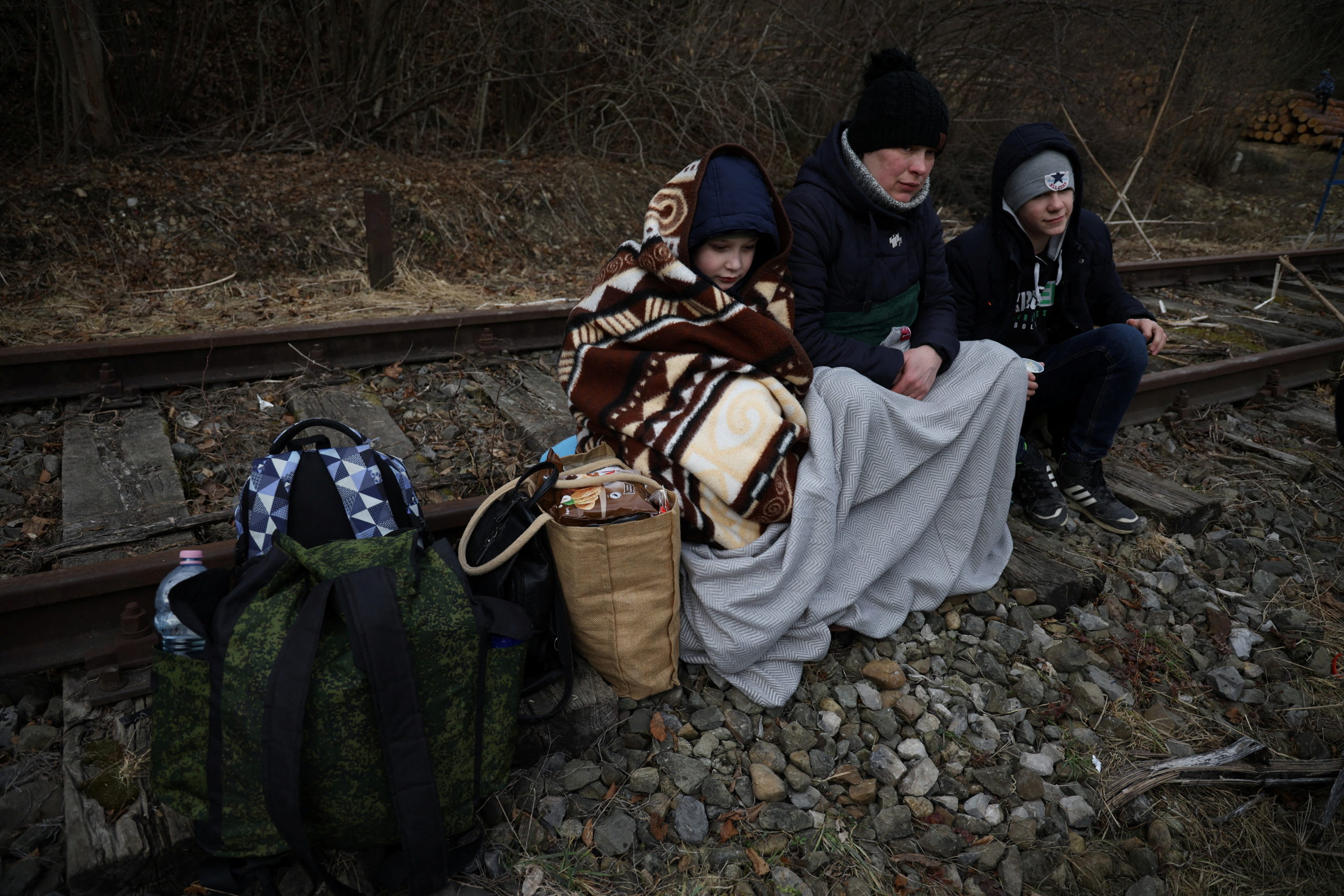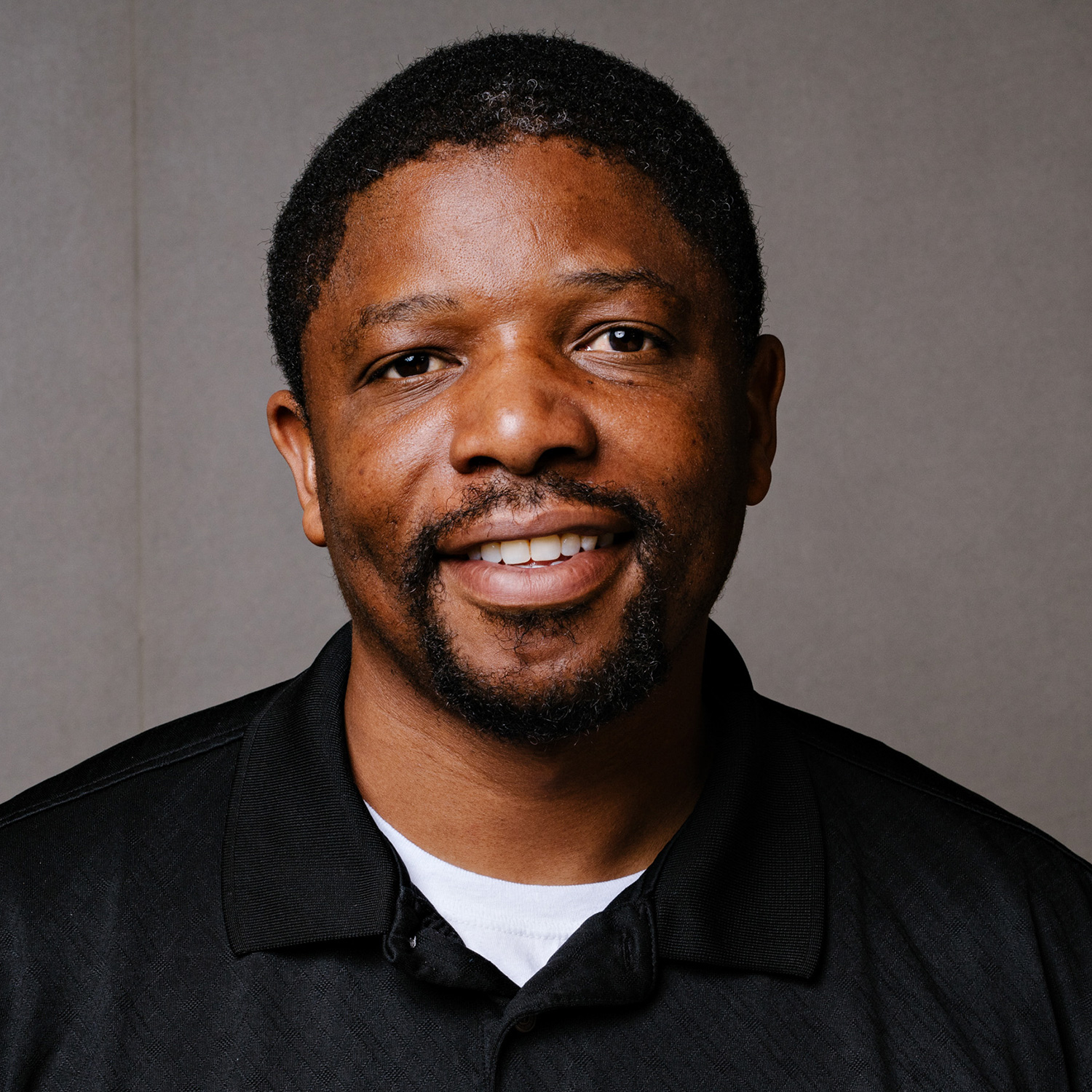
People sit on the railway after crossing the border between Poland and Ukraine, after Russia launched a massive military operation against Ukraine, in Kroscienko, Poland on Feb. 27, 2022
It didn’t take the Swiss leaving behind their well-known and well-worn status of neutrality to know the events unfolding in Ukraine are potentially world-changing and deserve the wall-to-wall, front-page coverage they are receiving.
There are plenty of reasons for news outlets to commit to saturation coverage of Russia’s decision to invade a sovereign nation, to help audiences understand the suffering of Ukrainians, and to empathize with their plight.
But not because “European people with blue eyes and blonde hair are being killed.”
Not because they “look like any European family that you’d live next door to.”
Not because “they seem so like us.”
Not because “We’re talking about Europeans leaving in cars that look like ours to save their lives.”
Not because they have Netflix and Instagram accounts like we do.
And not for any other reasons that range from the insensitive to the clueless to the outright racist.
Vladimir Putin’s decision to illegally invade another nation — and it is an invasion, not a “special military operation” — could easily spark another world war. President Joe Biden and American allies have to send a signal to other authoritarian rulers that it is not in their best interests to do what Putin did last week without triggering an even larger, bloodier conflict.
I don’t know what it will take to do that effectively. But I know how we cover these events will help shape international reaction to the millions of refugees this conflict is expected to produce, just as our coverage has affected refugees from other conflicts that were unfolding years before Russian tanks headed across the Ukrainian border.
The differences are stark. Ukrainian refugees are being welcomed with open arms in a way darker-skin refugees seldom have been.
And while we are quick to proclaim that we are just objective observers, the truth is that the words we use to describe various types of refugees influence public perceptions and thus public support for immigration policies for those fleeing conflict. As we’ve already seen, that has made it easier for journalists to empathize with Ukrainians, easier for journalists to tell those stories in ways more likely to open hearts rather than close minds. Suffering Ukrainians should be empathized with, and Putin should be called exactly what he is: a thug who has committed an evil against a neighboring country.
Not because Ukrainians are Europeans, but because they are fellow human beings who are no better or worse than the refugees produced by the Syrian conflict, the 2003 U.S. invasion of Iraq, the war in Yemen, or unrest in various parts of Africa.
The Russian invasion of Ukraine is dominating media coverage for obvious and sensible reasons. It has ramifications for just about everyone around the globe, either directly or indirectly. The invasion means the chances of nuclear war just increased, if only slightly.
It is a huge story for all those reasons and more. But we should not make the mistake that too many of us did at the outset of the Covid-19 pandemic, when coverage of anti-Asian sentiment took a backseat until it had fully erupted into harassment and physical attacks.
The racialization of this invasion — from Putin’s lies about launching it in part to fight Nazis to straight-news journalists, government officials, and pundits showing more empathy on air because those suffering are European — is not a side issue to be dealt with later. It is an important factor that must be grappled with now, alongside other important factors.
That’s why every time a journalist dips into race- or ethnic-based bigotry, whether intentional or not, it needs to be noted and corrected. Every editor and producer should be on alert. We should not wait until things settle down, because we don’t know when that will be, and the damage is being done now.
We must help our audiences understand the complexity of economic sanctions and military strategy, equip them to better sift through misinformation and disinformation, while avoiding falling into rhetoric that heightens the idea that we should empathize with some refugees more than others because they seem “like us.”
And when one of our colleagues says out loud during a national broadcast that he needs to be careful about how he talks about these events and still decides to suggest that Ukraine is “relatively civilized” in a way Iraq wasn’t when we invaded — because Ukrainians aren’t used to conflict the way Iraqis supposedly are — we need to call that out immediately, not six months from now.
We won’t be able to do that if we continue pretending that we are approaching these events from a place of absolute objectivity. We aren’t any more neutral than Switzerland was when it decided to stay on the sidelines during previous conflicts. How we frame the stories we are writing and producing to document Russia’s invasion of Ukraine — and the words we use to describe its citizens — matter a great deal. It affects how the world perceives those unfolding events.
If even the Swiss can finally admit there is no neutrality during a time like this, we should be able to as well.


